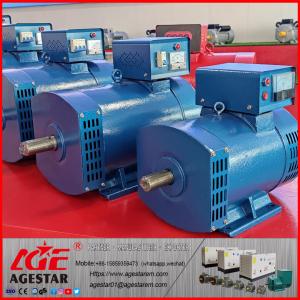Do you know how to choose the power output for diesel generator for home use ?
Choosing the right power output for a diesel generator for home use involves several considerations:
Assess Your Power Needs: Determine your average power consumption by reviewing past utility bills. Identify essential appliances and devices you want to power during an outage.
Calculate Total Power Requirements: List all appliances and devices you want to run simultaneously during a power outage. Consider starting and running wattages for each device, as some appliances have high starting wattages.
Consider Surge Power: Some appliances, like refrigerators and air conditioners, require extra power during startup. Ensure your generator can handle these surge demands.
Choose Generator Capacity: Select a generator with slightly higher capacity than your calculated total power requirements to accommodate surges and additional loads. For small households with basic needs, a generator in the range of 5 kW to 10 kW may suffice. Larger homes with more appliances may require generators ranging from 10 kW to 20 kW or more.
Evaluate Fuel Efficiency: Diesel generators generally offer better fuel efficiency and longer run times compared to gasoline generators. Consider the availability and cost of diesel fuel in your area.
Consider Noise Levels: Pay attention to the noise levels of the generator, especially if it will be installed close to living areas. Choose a model with lower decibel ratings for quieter operation.
Consult Professionals: If you're uncertain about your power requirements or which generator to choose, seek advice from professionals or reputable dealers who can provide tailored recommendations based on your specific needs.
Review Warranty and Maintenance: Check the warranty coverage and maintenance requirements of the generator to ensure it meets your expectations for reliability and longevity.





